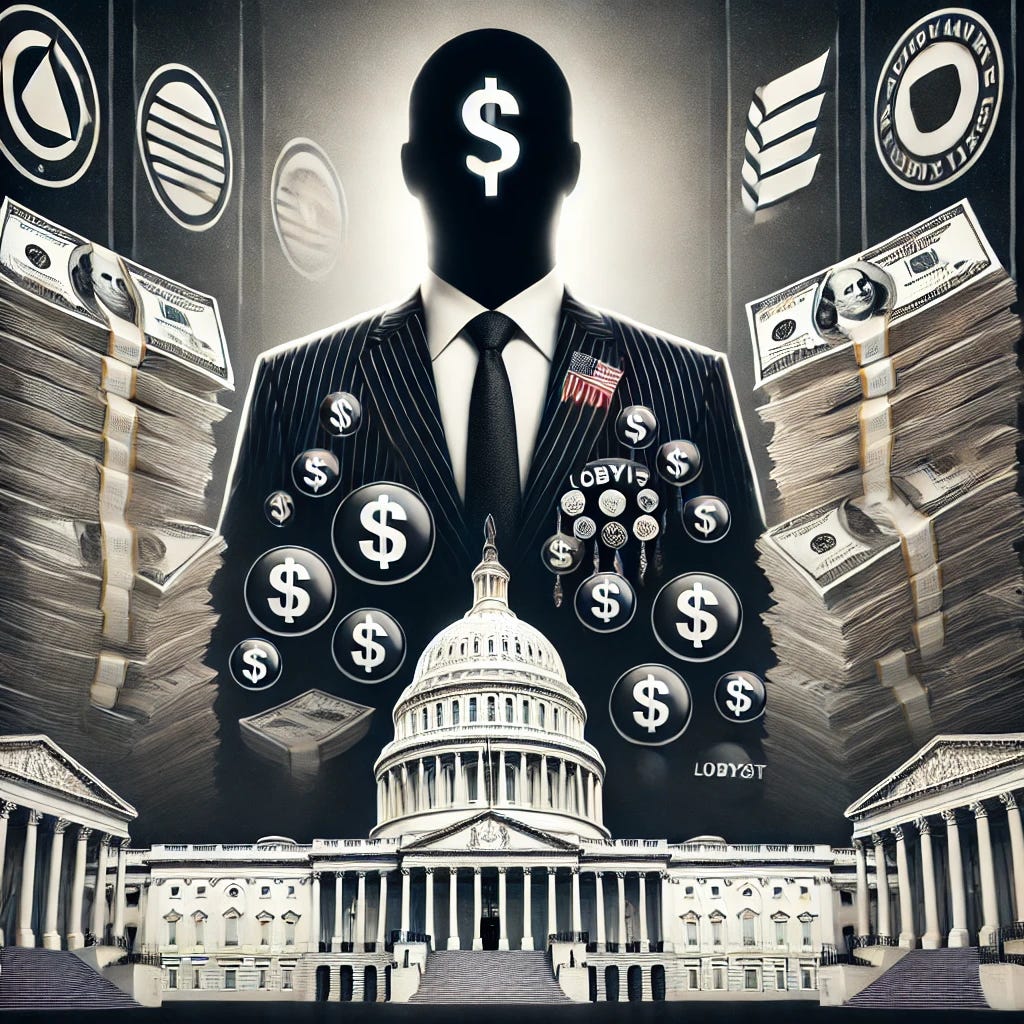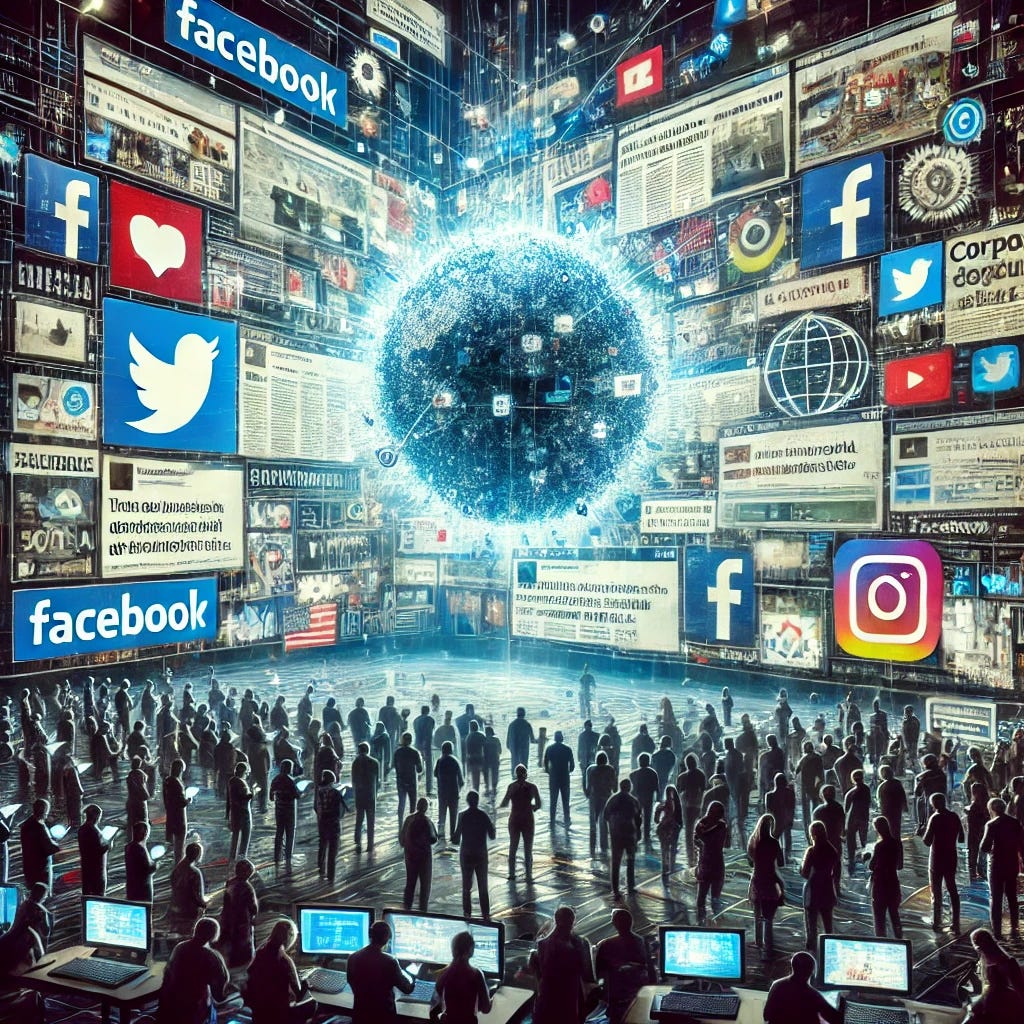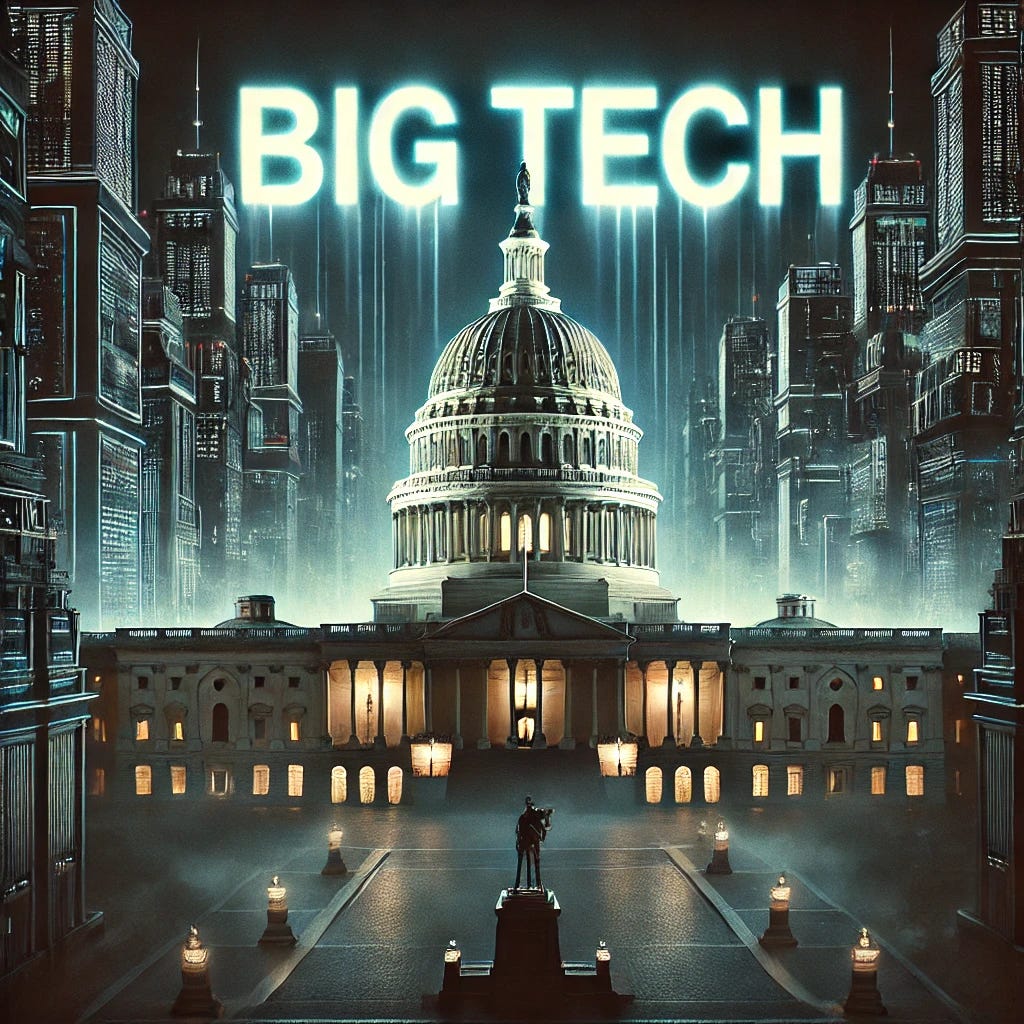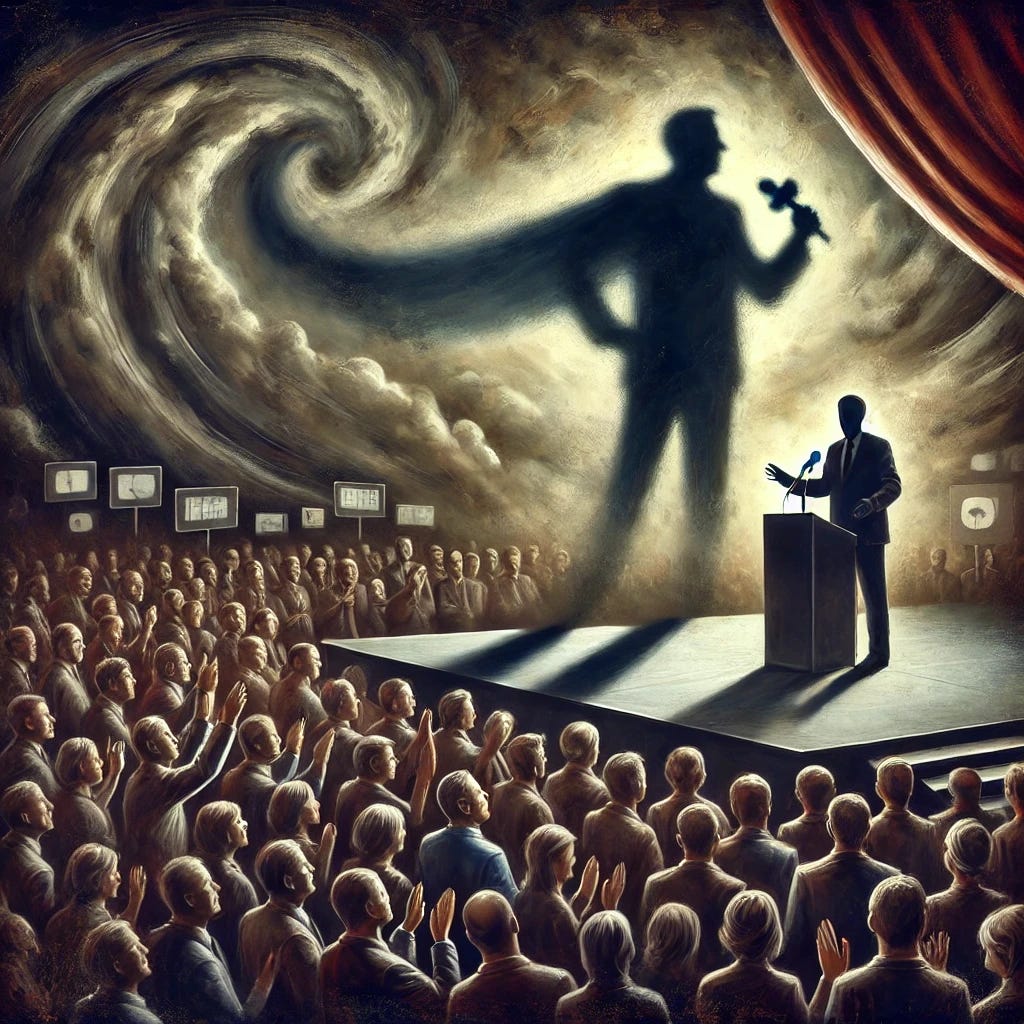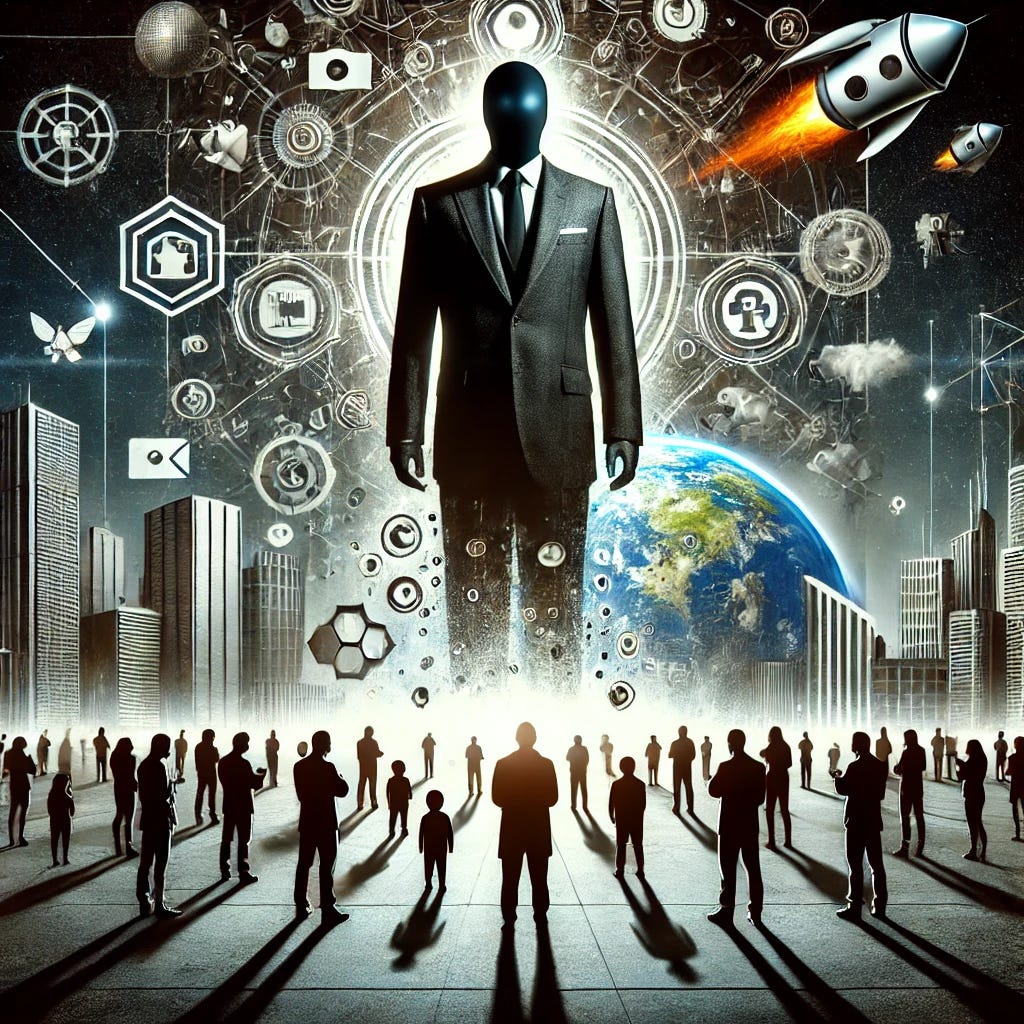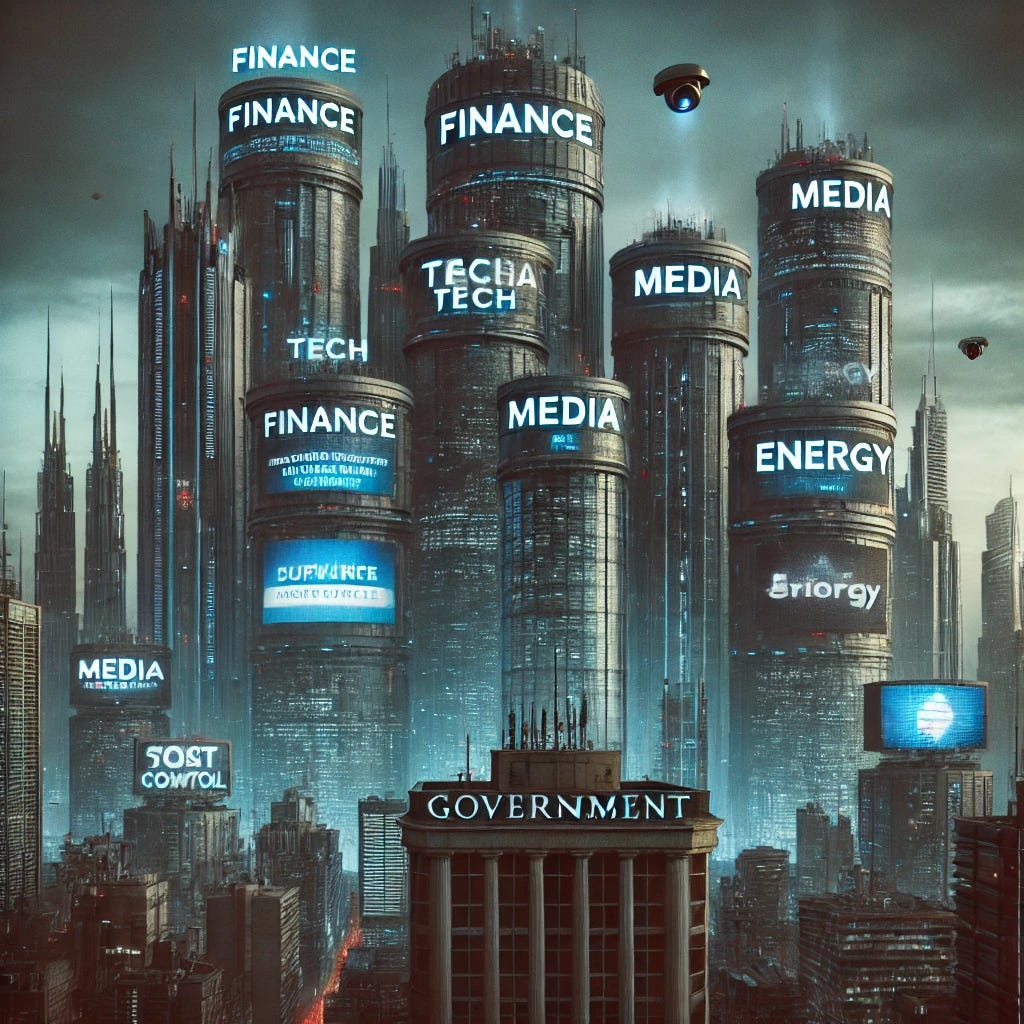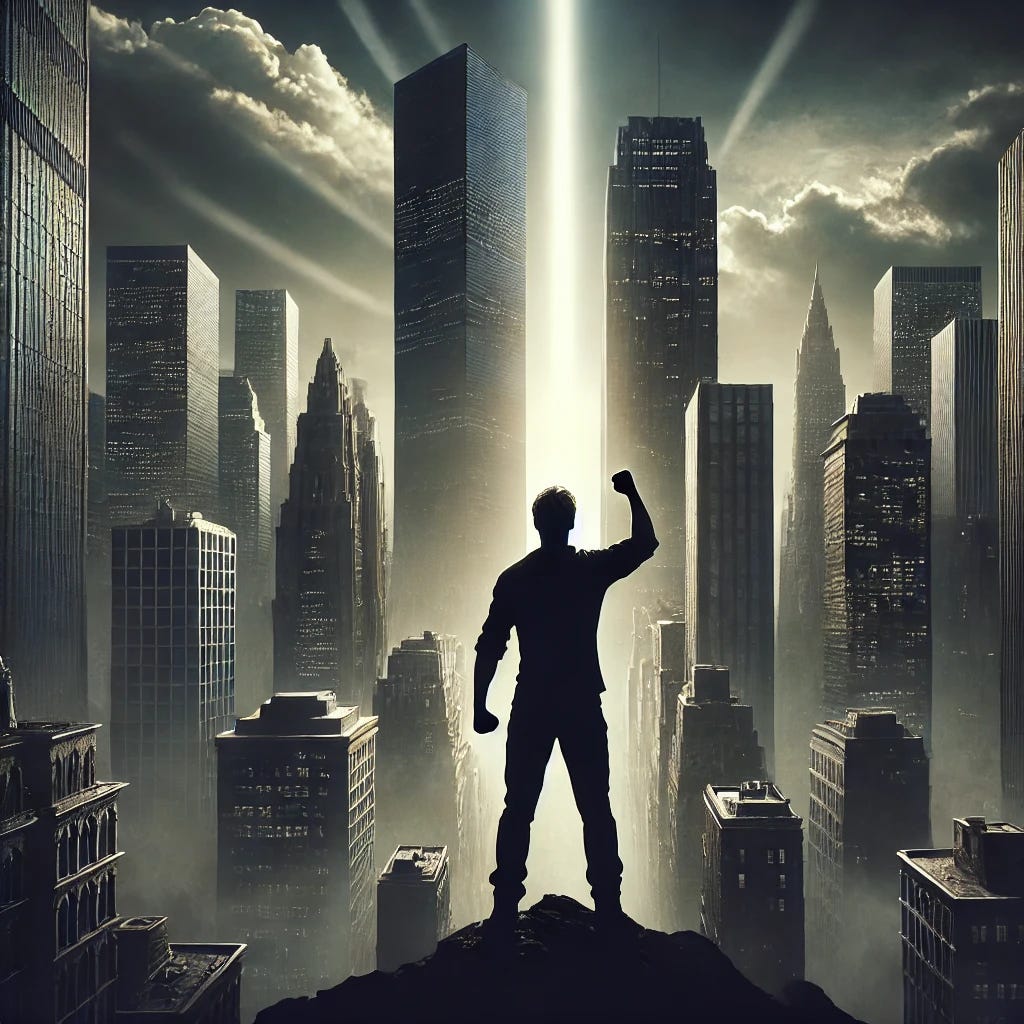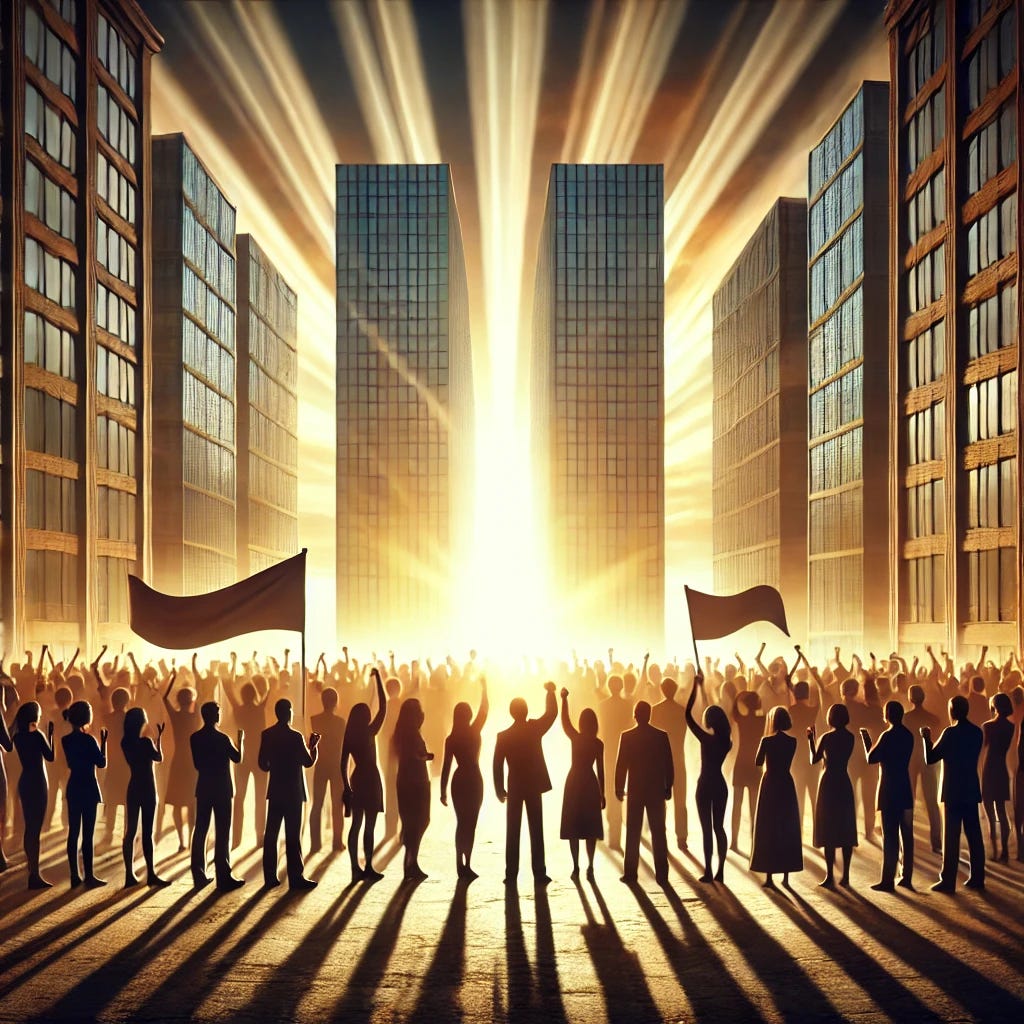The Slow Death of Democracy: Power, Profit, and the Rise of the Corporate-State
The decline of democracy isn’t an accident; it’s a carefully orchestrated power shift, built over decades and solidified by those with money, influence, and the means to bypass accountability
As corporate sloth in a corporate environment, I’m no stranger to the forces shaping our world behind the scenes. It’s a strange irony, really—to watch, from inside the walls of industry, the way democracy shifts, adapts, and sometimes disappears altogether in favor of interests that have nothing to do with the public good.
If anything, my day-to-day work has given me a front-row seat to this transformation, where policy feels less like governance and more like a strategic arm of corporate agendas.
And here’s the thing: the erosion of democracy didn’t start with Elon Musk or even Donald Trump. It didn’t start with Big Tech’s algorithms or with political operatives stirring up a divided base. It began long before, with the steady rise of corporate lobbying, the quiet but powerful alignment of government policies with business interests, and the unchecked growth of technology.
Decades ago, democracy began to shift from a public service to a product, where governments worked not for the people but for those who could afford to buy influence.
Lobbying didn’t just get a foothold in government—it took the wheel, steering policy toward the highest bidder. Then, technology came along and with digital platforms wielding the power to control public perception, shape the news we read, and even predict our opinions, democracy isn’t merely at risk; it’s being fundamentally redefined.
Chapter 1. It Started with Lobbying: When Corporations Became Lawmakers
The 1980s marked a turning point for corporations, which quickly moved from market players to political giants. Lobbying efforts surged, and with them, the power of a select few corporations to shape policy. Today, just 10 corporations control much of what we consume.
Companies like Nestlé, Coca-Cola, and Unilever don’t just fill grocery store shelves; they dictate entire markets. And with that control, they also gained unprecedented access to the halls of power. Lobbying wasn’t just a way to influence a law here or there; it became a system of direct corporate governance, with “suggestions” quickly becoming policy and campaign donations morphing into a cost of doing business.
The corporate influence was systematic, from food to pharmaceuticals. Each time a new regulation arose, lobbying expanded to meet it, pushing loopholes into environmental standards, labor laws, and even trade agreements.
Over time, this influence grew so deep that legislators, many funded by corporate money, became less public servants and more corporate agents. Instead of “regulating” corporations, governments were increasingly enablers of a system where public health, safety, and welfare were market-driven concerns.
The system set the stage for a new brand of democracy, one where the voter is a secondary player, and corporations, with their perpetual lobbying machines, are the true citizens. Today, companies in tech, food, pharmaceuticals, and finance are so powerful that they define the laws they should abide by—a democracy run by 10 corporations rather than millions of citizens.
Chapter 2. The Internet: The Great Disruptor and the Ultimate Reinforcer
When the internet burst onto the scene, it promised something entirely different: a new, open space where everyone could have a voice. It seemed like the ultimate equaliser, allowing anyone, anywhere, to express opinions, create content, and connect.
And for a while, it was just that—a tool of genuine democratic expression. But as it grew, its potential to reinforce power structures became evident. Tech companies, with all the resources to harness this new tool, quickly turned what was once an open forum into a curated echo chamber.
What began as a free-flowing exchange of ideas quickly became a controlled space, where algorithms fed users what they were most likely to “engage” with. Profit, not discourse, became the driving force. Platforms like Facebook, Google, and later TikTok realised that the best way to keep users engaged was not by presenting a balanced view, but by delivering content that elicited emotional responses—often outrage, sometimes sadness, occasionally joy, but always something to keep users scrolling.
As this cycle perpetuated, the role of the internet shifted from a marketplace of ideas to a digital shopping mall, where ideas and ideologies were bought, sold, and reinforced according to what was most profitable.
At the same time, governments, slow to understand and regulate the internet’s influence, were left scrambling to catch up. The pace of technology far outstripped any regulatory body’s ability to respond meaningfully. The rise of fake news, conspiracy theories, and divisive content flooded platforms with little recourse.
Even today, regulations such as GDPR in Europe or the piecemeal efforts in the U.S. feel like band-aids on a fractured system. The internet, intended to democratise, became the first major force to erode democracy itself.
Chapter 3. Big Tech Ascends: The Unstoppable Erosion of Public Control
Big tech took the internet’s potential and turned it into a machine, one that doesn’t just control what we buy but what we think. By the time Facebook, Google, Amazon, and other tech giants had monopolised our online lives, they also had something far more valuable than any corporation before them: our data. The algorithms now dictating everything from our shopping choices to our political beliefs aren’t guided by ethics or transparency—they’re guided by profit margins.
Take Facebook, for instance. The 2016 U.S. election showed that platforms can do more than keep users scrolling; they can shape public opinion at a national scale. Cambridge Analytica was just one example of how data could be mined to manipulate voters, amplify divisive issues, and ultimately influence an election. But that was only the beginning.
Today, platforms are the new public square, and the tech companies that control them are the gatekeepers. Every interaction, every article, and every image is filtered through an algorithm built to maximise engagement—and what maximises engagement is almost always sensationalism, misinformation, and controversy.
Meanwhile, legislators struggle to make sense of the technologies they’re supposed to regulate. For every attempt at data protection, big tech has a team of lobbyists ready to twist policy in its favor. Governments may talk of protecting citizens, but their slow response and limited understanding of tech realities have left them practically powerless.
In a system where regulations lag years behind innovation, big tech essentially operates with a blank check. Democracy may give us a vote, but big tech ensures it’s cast in a world where public opinion is algorithmically engineered.
Chapter 4. Trump and the Power of Misinformation: Democracy as a Performance
And then came Donald Trump. Here was a figure who seemed to understand the new landscape intuitively—a man who knew that truth was less important than perception, and that public opinion could be shaped not by facts but by spectacle. Long before he entered politics, Trump admitted to Oprah that he would consider running as a Republican because he believed the voter base would be easy to manipulate. This wasn’t a hunch; it was a calculated approach to power in a world already primed for misinformation.
Once in office, Trump leaned into conspiracy theories, stoked insecurities, and used every tool available to maintain his grip on the public psyche. He wasn’t merely a president; he was a brand, and his brand was chaos. The rules didn’t apply because in a post-truth world, the rules are only as real as people believe them to be.
Trump didn’t invent misinformation, but he perfected its use in politics. In his hands, social media became a megaphone, amplifying his voice and creating an atmosphere where dissent was rebranded as “fake news.”
Trump’s presidency was a trial by fire for democracy. His approach revealed the vulnerabilities of a system not built to withstand leaders willing to bend reality itself. By exploiting big tech’s algorithmic grip, Trump weaponised democracy against itself, and the democratic institutions meant to check him found themselves helpless in a new, digitally manipulated landscape.
Chapter 5. Musk’s Utopian Technocracy: The Final Stage of Power Consolidation
And then there’s Musk—a man who, unlike Trump, doesn’t operate from political ambition but from sheer, unchecked influence. If Trump is democracy’s showman, Musk is its architect. With his hands in everything from Tesla and SpaceX to Twitter (X) and Starlink, Musk is crafting a future in his own image. Where Trump’s influence is bound to U.S. politics, Musk’s vision stretches across borders, atmospheres, and into space itself.
The danger with Musk isn’t just that he’s unchecked—it’s that he has zero accountability. Through Starlink, he controls a piece of the world’s communication infrastructure. Through Tesla and SpaceX, he commands resources once reserved for governments.
When Musk publicly declares that government would be “better run by CEOs,” he isn’t joking; he believes that democracy is inefficient, a relic of a slower era. In his utopia, leaders are disruptors, not representatives, and progress is defined by technology, not public consensus.
His acquisition of Twitter (now X) made this ambition plain. Musk doesn’t just want to sell electric cars; he wants to shape culture. Through Twitter, he controls not only a social platform but a direct line to public opinion. His political influence, unlike Trump’s, isn’t loud—it’s quiet, woven into the technology that now structures daily life. Where Trump used spectacle to command attention, Musk uses ownership to control the stage itself.
Chapter 6. The near future: corporate-state oligarchy
The election is 5 days away and should we see Trump enter the White House, our near future could look very different. What we’ll be left with is democracy in decline; eventially dismantled, its pieces reassembled in the hands of those who never needed it.
The rise of lobbying, the internet’s corporate takeover, big tech’s unchecked power, and the populist manipulation perfected by Trump and Musk will have created a new system. Public voice exists, but only within boundaries controlled by billionaires and tech giants. Elections happen, but in a world where the options are curated, the narratives pre-sold, and the truth itself negotiable.
BUT…
If democracy is eroding, which I dearly believe, it isn’t from a single blow but a thousand, drawn-out cuts. From corporate lobbying and big tech’s control of information to the unchecked influence of billionaires like Elon Musk, our system of public power is being steadily transformed right before our eyes.
Not by a revolution of ideals—but a quiet, constant shift where democracy is increasingly defined not by the people but by the tech giants and corporations that shape what we see, think, and buy. Left unchecked, this evolution is already forming what might be best described as a "corporate-state oligarchy"—a new model of control where citizens have voices but only in a world pre-curated by private interests.
Yet, if we recognise these patterns, there’s a real chance to take action, to rethink and rebuild democratic resilience before the system ossifies. Here’s how.
Chapter 7. Rediscovering Power in an Oligarchic Technocracy
After a journey through the sobering reality of democracy’s current trajectory, it’s tempting to feel resigned. But resignation isn’t our only option. History has shown that as systems shift, people innovate to challenge them. Understanding where democracy is faltering allows us to rethink what it could look like—whether through citizen-driven reforms, accountability for big tech, or public awareness campaigns that call out abuses of power. Here’s where change can happen and why hope isn’t lost.
Reclaiming Public Spaces and Regulating the Gatekeepers
Big tech is the new public square. But it doesn’t have to stay this way. Regulations that treat platforms like public utilities—imposing strict guidelines for transparency, data use, and content moderation—could shift the narrative from “maximise engagement” to “maximise public good.”
Europe’s Digital Services Act is a promising start, but governments must go further, demanding clarity in algorithms, fair representation for all voices, and financial penalties for misinformation. Without regulation, big tech will continue to steer public discourse. With it, we can redefine digital platforms as spaces for genuine debate and information exchange.
But accountability doesn’t end with the platforms. Governments must establish clear laws protecting data and privacy, ones that can’t be overridden by lobbying. This requires dedicated, technologically skilled regulatory bodies capable of monitoring and enforcing rules that currently lack teeth. It’s ambitious, but if democracies don’t adapt, tech will simply keep writing the rules.
Revitalising Local Democracy: Power Begins in Communities
National politics often feels removed, especially in the face of billion-dollar tech giants, but local democracy is where real change can begin. From local ballot measures and participatory budgeting to citizen assemblies, empowering communities allows people to push back against national trends.
In local spaces, citizens can demand transparency and set the example for greater accountability.
The power of community-driven action shouldn’t be underestimated. While Musk and others may shape global narratives, local bodies can tackle issues like internet access, data use, and education on misinformation in ways that have immediate, tangible impacts. By strengthening local democratic structures, citizens can build resilient models that could then scale to national and even international levels.
Resisting Algorithmic Reality: Media Literacy and Civic Awareness
If platforms control what we see, the antidote is empowering people to understand how they’re influenced. Media literacy programs should be as standard as math or science in schools, teaching citizens to recognise bias, question sources, and spot algorithmic manipulation. Civic awareness campaigns, particularly targeted at youth, could radically shift public understanding, giving citizens the tools to resist manipulation.
Technology can also work in our favor. Nonprofit organisations, digital literacy campaigns, and even ethical tech companies can create tools that help people take control of their own data and online presence. While big tech feeds on algorithmic engagement, a well-informed public is its greatest disruptor.
Billionaire Influence: Strengthening Campaign Finance Laws
The unchecked influence of billionaires, from funding elections to skewing media, is fundamentally anti-democratic. Strengthening campaign finance laws to cap corporate donations, eliminate dark money, and introduce transparency requirements would mitigate some of this influence. In the U.S., overturning Citizens United would be a monumental step toward reducing the power of money in politics, but similar reforms are needed worldwide.
Grassroots campaigns, public pressure, and organisations committed to reducing the influence of wealth in politics are powerful tools. From the “Get Money Out” movement to public financing of campaigns, steps like these restore balance, making it possible for ordinary people—not corporations or billionaires—to set the terms of democracy.
Chapter 8. Why It Matters: Preserving Democracy in a New Age
While the forces that have redefined our democratic landscape are vast and well-resourced, they are not immune to collective action. If democracy is to endure, it must evolve, not into the digital mirage designed by tech giants, but into a system strengthened by transparency, local empowerment, and new rules for a new era. This battle isn’t just about preserving tradition; it’s about reimagining democracy in a way that fits the digital age.
If we fail, democracy will remain a façade—an empty term used to placate citizens while corporate interests dictate what freedom and governance mean. But if we succeed, we’ll be part of a revitalised system where the public once again has power, where technology serves us, not vice versa, and where voices aren’t just heard but matter.
As we face this uncertain future, the question isn’t only what democracy is today but what we are willing to make it. It’s time to choose between an engineered reality and a future where we actively shape the systems that define us.





